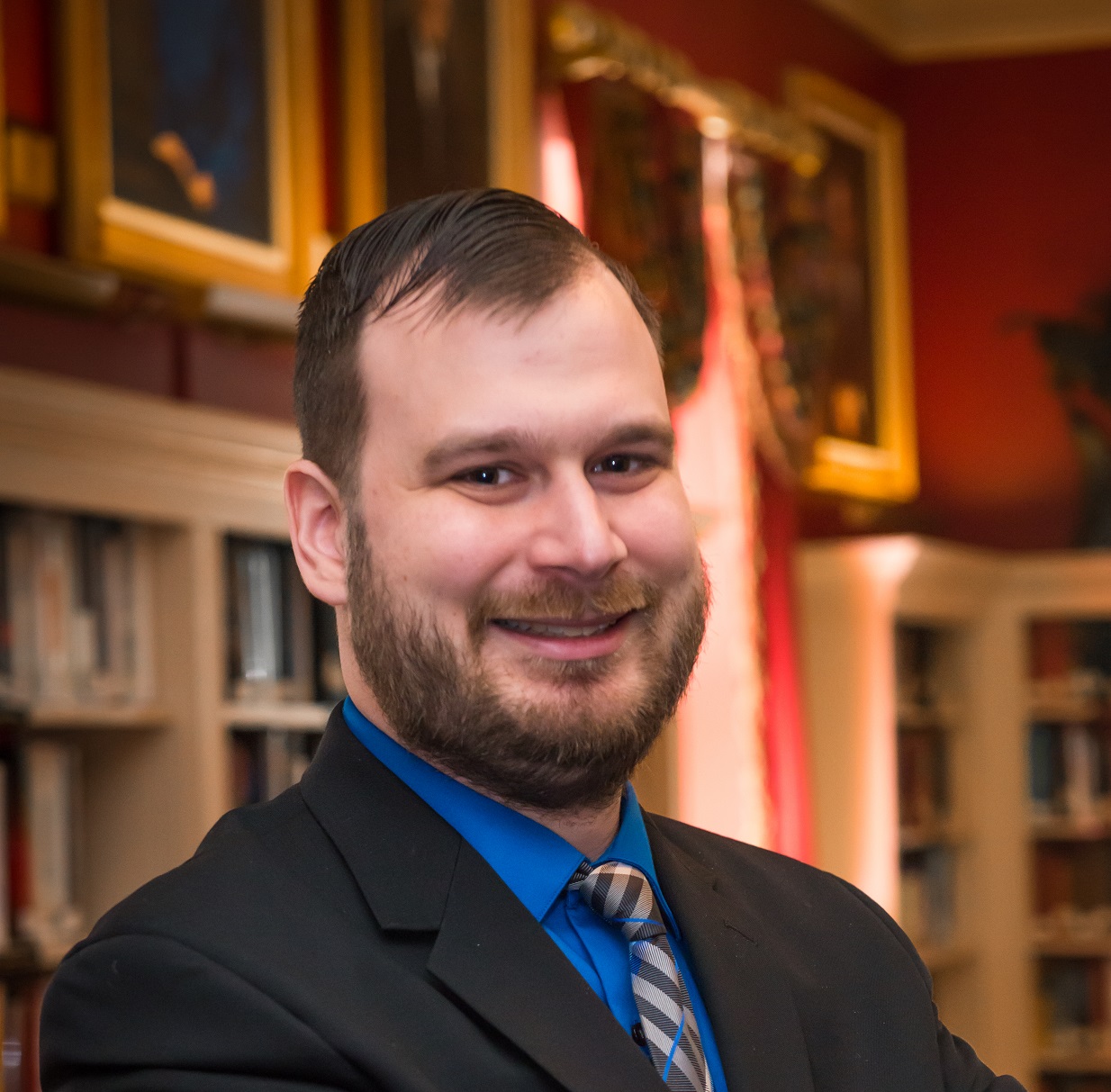The United Methodist Church will soon divide between a liberalized post-separation United Methodist Church (psUMC) and a theologically orthodox Global Methodist Church (GMC). It is universally agreed that the GMC will continue the UMC’s ban on gay weddings while the psUMC, as explicitly envisioned in the Preamble of the “Protocol on Reconciliation and Grace through Separation,” will somehow repeal this ban. But beyond gay weddings, there are many other matters of sexual morality to be navigated by United Methodists on diverging trajectories.
The GMC will have plenty of its own challenges.
As for the psUMC, it can be expected to move quickly to officially declare its embrace of gay weddings as well as transgendered and partnered gay clergy. But what other shifts in sexual morality might follow?
An answer to this question was offered in a recent sermon by a prominent liberal United Methodist leader. In the context of acknowledging our denomination’s coming to “a painful, yet necessary parting of the ways,” in which those in the psUMC will “construct something brand new,” the Rev. Doug Damron called (beginning at the 46:51 mark) for the psUMC to “speak into existence a church which fully welcomes, includes, affirms not only God’s beloved gay and lesbian ones, but a host of other folks who have found the door of the church closed to them: trans folks, bi folks, kink folks, poly folk, gender-fluid folk, and others” (emphasis added).
The dictionary defines “poly” as a slang for “polyamorous,” in reference to those who openly have multiple concurrent sexual partners. The context of Damron’s sermon and years of activism makes clear that his calling for the church to fully welcome, include, and affirm people—whether gays and or the polyamorous—he means affirming their distinctive practices, and elevating people engaged in such practices to all levels of denominational leadership.
This rejection of monogamy as a universal moral standard, and endorsing at least some adultery, is striking from a key leader like Damron. Together with former Ginghamsburg Church Pastor Mike Slaughter, he was an early leader in the “United Methodist Centrist Movement,” and then served with Church of the Resurrection Pastor Adam Hamilton on the national leadership team of the “Uniting Methodists” caucus. Damron also is a former chair of the West Ohio Conference board of ordained ministry.
Beyond his support for polyamory, I am not sure what Damron had in mind by separately calling for unqualified church affirmation of “kink folks” and “others.” But those who choose the psUMC will get to find out.
But it cannot be overstressed that many liberal clerics crusading for church acceptance of gay weddings more broadly oppose the sexual ethic of celibacy in singleness and monogamous fidelity in marriage.
Key arguments heard for church “holy union” services have obvious logical implications for other areas of sexual morality: The church has no business teaching against sexual relationships between consenting adults. Biblical prohibitions of certain sexual practices can conveniently be placed in a “bucket” of Bible verses that we tell ourselves never reflected God’s heart. We must NOT have accountability to the point of church trials over any “human sexuality” matters (the call of a resolution pushed by Damron and Slaughter’s group). Polls show that the church’s values are out of step with secular American culture.
By the logic of that last argument, shouldn’t polls show slightly greater numbers of Americans approving “sex between an unmarried man and unmarried woman” than of “gay or lesbian relations” pressure the church to also follow American secular culture on the former? For those who urge church embrace of gay weddings to pander to American young adults, then by that same logic, why shouldn’t the church also follow the polls to affirm pornography?
In any case, Damron is not just a fringe outlier.
At the UMC’s 2019 General Conference, 323 delegates (nearly 40 percent), including most supporters of the so-called One Church Plan, voted in favor of a set of proposals called the Simple Plan. If you click on the Submitted Text of one petition, you see that it would have not only deleted homosexuality-related behaviors from the list of “chargeable offenses” for which UMC clergy may be disciplined, but also deleted the chargeable offenses of “not being celibate in singleness or not faithful in a heterosexual marriage.” The “Submitted Text” for another Simple Plan petition would have not only removed from our Social Principles’ core “Human Sexuality” teaching the standards the standard that sex is only for heterosexual marriage (which would have been easy to do), but also deleted any clear standard of sex being morally reserved for monogamous marriage. Even Karen Oliveto acknowledged this as a political problem for the Simple Plan.
At the UMC’s 2016 General Conference, one conservative-backed proposal would have required all new, full-time, denominationally funded United Methodist missionaries to be committed to the sexual ethic of “fidelity in marriage and celibacy in singleness.” Deliberately, it made no mention of homosexuality, and arguably would not have imposed any restrictions on gay missionaries beyond expecting them to abstain from sexual relations outside of monogamous relationship they called a marriage. But apparently, even this was a bridge too far for United Methodist liberals. The proposal was overwhelmingly defeated in committee, with over 75 percent of committee delegates voting against it.
At the 2008 General Conference, 416 delegates (45 percent of those voting) voted in favor of a Legislative Committee Majority Report that would have omitted from our denomination’s foundational “Human Sexuality” statement any explicit teaching that sex is only for marriage.
In the absence of contrary explanations by any delegates who voted this way, I see no reason to not trust that this large United Methodist faction, whose perspectives will dominate the psUMC on sexual morality and other issues, meant their own words when they voted to roll back church disapproval of adultery and premarital sex.
Over the years, liberal United Methodist leaders have repeatedly expressed this permissive attitude on sexual morality. In 2009, the liberal-dominated, apportionment-funded UMC General Board of Church and Society (GBCS) posted a guest column by radical Unitarian Universalist sexologist Debra Haffner promoting her ethic of how someone can have “a moral, ethical sexual relationship” outside of marriage. In 2010, another GBCS article decried the UMC’s prohibition of sex for our unmarried, heterosexual clergy. The Methodist Federation for Social Action (MFSA) ran a column by a United Methodist minister railing against how it is allegedly “ridiculous in 2016” that “being a person who is sexually active while single is against the rules.” This spring, the Liberation Project offered its vision of sexual morality for post-Separation United Methodists, which included an openly casual attitude towards sex outside of marriage and one pastor sharing, “I date all across the gender spectrum.”
The Reconciling Ministries Network (RMN), which has long been the main unofficial caucus pushing to liberalize UMC standards on sexuality, has a well-documented track record of also endorsing polyamory, non-marital sexual relationships, and even, apparently, group sex parties (see their Open Hands article). RMN’s 2013 convocation hosted a scholar known for claiming Jesus Christ was homosexually active, and apparently included, like Damron, tolerant discussion of polyamorous and kink identities. A 2015 RMN article refused to morally rule out polyamory. RMN has lately promoted the cause of ordaining drag queens (men who dress flamboyantly as women).
I cannot recall a single instance of any liberal bishop or leader in any major progressive or supposedly “centrist” caucus ever taking any initiative to specifically, unequivocally, and publicly repudiate any of the sexual morality agendas of liberal United Methodist leaders noted in the previous two paragraphs. (Let alone show any appreciation for how IRD/UMAction and other renewal caucuses have challenged such radicalism.)
True, some liberal United Methodists have paid abstract lip service to the sexual morality of celibate singleness and faithful marriage, when such lip service has appeared politically convenient for them.
But how many “Reconciling” pastors ministering to large LGBTQ constituencies have tackled as a serious moral problem the lack of interest by much of the LGBTQ community in following the same standard?
In the polarized reactions over clergy accountability in recent years, when have you ever heard anyone say anything like, “I do not think that minister should be defrocked for his homosexuality, but he should not have lived with his partner before a holy-union ceremony”? It appears that most enthusiastic supporters of actual, non-celibate gay clergy generally don’t care about such matters or regard them as none of the church’s business.
For those who see nothing inherently immoral in gay sexual relations outside of marriage-like commitments, why would that same permissiveness not apply to everyone?
In an extended defense for church embrace of pre-marital sex, United Methodist campus minister Roger Wolsey from Minnesota perhaps speaks for many “straight allies” in frankly admitting that removing church disapproval of homosexual practice will help the cause of removing church disapproval of the sorts of sexual sin in which he desires to indulge. He treats his extensive teenage porn habit as perfectly normal (without any hint of moral disapproval) and defiantly declares that as a divorcé, he “jolly well will have sex with a future lover prior to getting married again some day.” Wolsey also expresses some in-principle openness to “a mature Christian couple allowing each other to have occasional sexual explorations with other people.” Amidst repudiating all sorts of biblical moral teaching, Wolsey even bizarrely claims that “Jesus employed an ethic of love that was a form of moral relativism.” Evidently, Bishop Bruce Ough of Minnesota (Wolsey’s home conference) and Karen Oliveto of the Denver Area (where Wolsey actually served) had no problem appointing someone so publicly opposed to basic Christian sexual morality to run a United Methodist ministry focused on college students.
To be fair, Bishop Ken Carter has been a forceful advocate for liberalizing church standards on homosexuality, but had a church trial that defrocked a married minister, Errol Leslie, who had committed heterosexual adultery.
But that case involved the added problems of Leslie having “misused his authority” with a laywoman, and I have seen no evidence that Leslie’s wife approved of his adultery. So even that was outside the boundaries of Wolsey’s tentative progressive Christian ethic of polyamory.
Perhaps the psUMC may temporarily retain some of the Discipline’s language about sex being only for marriage, while the de facto reality steadily shifts, more rapidly in some regions than others. Remember, those who will lead post-separation United Methodism have already mastered the art of making official denominational standards on sexual morality widely ignored and unenforced in many places.
Anecdotally, I am already aware of liberal, heterosexual clergy candidates in some of our most LGBTQ-affirming conferences apparently feeling neither moral conviction to abstain from pre-marital sex nor concern for facing any serious risk of discipline.
As the psUMC increasingly conforms to secular Western culture, premarital sex will likely become increasingly the norm among its clergy, particularly newer ones. Even if the sex-is-for-marriage standard of morality remains on paper, for a time, it is hard to see much appetite among post-separation United Methodists for rigorously enforcing this standard to the point of charges and church trials. Other forms of sexual permissiveness may become increasingly tolerated in principle though relatively less common in practice.
In the New Testament’s account of the first congregation to take a “Reconciling” or “open and affirming” stance towards sexual sin, Paul warned Corinthian believers that even a little bit of unrepentant sexual sin would poisonously “leaven the whole batch of dough” of the church. (He also later made clear how restoration is the goal of church discipline.)
I respect the right of any United Methodist to choose to go with the psUMC.
But if they later notice in their denomination louder calls for affirming “poly,” “kink,” and other non-traditional sexualities, increasingly casual attitudes about pornography, fewer and fewer single pastors willing to model and teach pre-marital chastity, and/or pastors appointed over congregations near them who are homosexually partnered, transgendered, drag queens, or who “date all across the gender spectrum,” then it is not as if there was no fair warning.






Comment by Steve S on July 19, 2021 at 5:35 pm
What does the psUMC believe in other than everything? What distinguishes them from secularism?
Comment by Thomas Brown on July 19, 2021 at 6:28 pm
Someone sitting in the pew will quickly begin to wonder why they even bothered to go to church that day.
Comment by Diane on July 19, 2021 at 7:49 pm
Nothing can separate us from the love of God.
Comment by RG on July 19, 2021 at 9:14 pm
It is sad and sickening to see what the UMC tolerates. Unbelievable that the official news service put out the video on “Penny Cost.”
I guess it is a good thing for evangelicals like me when “centrist” leaders let their masks drop.
I also lament that some defend these remarks by alluding to Romans 8 or John 3:16 as if to imply God loves anything and everything. If nothing separates from the love of God does pedophilia get a pass too?
Comment by Jeff on July 19, 2021 at 10:34 pm
We can separate ourselves from the love of GOD. Read Romans 1.
According to the Almighty and His Son, practicing polyamorous “kink” would be one efficient way to accomplish that.
Comment by Pastor Mike on July 20, 2021 at 6:59 am
When the church embraces sexual perversion, promiscuity, and deviant behavior, it ceases being the church. Where there is no belief in sin – there is no perceived need for grace. Where there is no belief in judgement – there is no perceived need for mercy. Where there is no repentance – there is no perceived need for a Savior.
Comment by Mike on July 20, 2021 at 8:41 am
“Nothing can separate us from the love of God.” A misquote from Romans 8: 38-39. Unless you have come to God through Jesus Christ, and have turned from your wicked ways, you cannot claim this promise.
Less there be some, including Diane, who claim that I have added a legalistic requirement to be saved (“turn from your wicked ways”), I am reminded that the apostle Paul named some lifestyles in I Cor. 6 that would keep you out of heaven.
Comment by Lee Cary on July 20, 2021 at 9:03 am
This IRD blogger continues to be on target. Only one change in the above piece may warrant consideration:
“But if they later notice in their denomination louder calls for…”
Substitute “when” for “if”. For “if” is inevitable.
Comment by Jeff on July 20, 2021 at 11:05 am
Mike said: “Less there be some, including Diane, who claim that I have added a legalistic requirement to be saved (“turn from your wicked ways”), I am reminded that the apostle Paul named some lifestyles in I Cor. 6 that would keep you out of heaven.”
Hey, not only Paul, but God from his THRONE IN HEAVEN named some lifestyles that would keep you out of there! Rev. 21:7-8.
What’s more… if the behaviors spoken of in the original post don’t encompass sexual immorality… then the term has no meaning.
Comment by Steve on July 20, 2021 at 11:10 am
Immediately preceding Diane’s cherry picked out of context quote:
5 Those who are dominated by the sinful nature think about sinful things, but those who are controlled by the Holy Spirit think about things that please the Spirit. 6 So letting your sinful nature control your mind leads to death. But letting the Spirit control your mind leads to life and peace. 7 For the sinful nature is always hostile to God. It never did obey God’s laws, and it never will. 8 That’s why those who are still under the control of their sinful nature can never please God.
Comment by Star Tripper on July 20, 2021 at 3:15 pm
My old pastor back before the 2019 General Conference went through an elaborate explanation of why he thought recognizing gay marriage was justified (he had a friend in seminary who came out of the closet) and it would stick with just committed couples. Yeah but on whose authority will it stay with that standard? He was throwing out God’s standard and substituting…..himself? And as for those declaring the Post-Wesleyan Methodist Church will be new…..no, it will be as old as Babylon.
Comment by George on July 24, 2021 at 7:00 am
In just under fifty years, this country has degraded itself by legalizing abortion, sodomy and drugs. All of which destroys lives and families . Many of our church’s have fallen right in line by either supporting or ignoring these things. What’s next ? Don’t be shocked if it’s adult/child relations. Some state will change their age requirements for consent and then lower the penalties and then some liberal court will legalize it everywhere. Then some church will start ringing the wedding bells. All this while someone goes about shouting, “nothing can separate us from the love of God”. Don’t bet on it .
Comment by Terry Bethnel on July 29, 2021 at 8:54 am
What God seeks is love. Yes, if procreation is involved then a mutual lifetime commitment is necessary for the emotional health of the children. The Gospel is clear on this. Outside that necessity, though, what God seeks is love. Humans should in all ways at all times be working to nurture, bless, and extend our love for each other. This includes how we work together as church.
Yes, couples who procreate, or otherwise take on responsibility for children, must be held to higher standards. For the children.
Comment by BG on August 8, 2021 at 12:33 pm
My liberal church friends would defend gay marriage by saying “If two people love one another, how can you deny them marriage (and having sex)? I can hear them continue, if three, four, more people love one another, how can you deny them polygamous marriage (and having sex)? And it goes on, If an adult and a child love one another, how can you deny them marriage (and having sex)? If a human and an animal love one another, and on and on. You see for them “Love” justifies sin. I only hope that for many middle of the road Methodists, the liberals will at some point cross the line for even them.